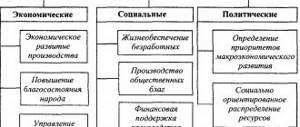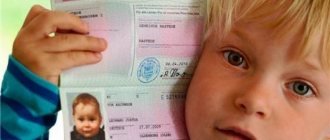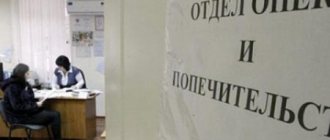Legal assistance in cases of violation of children's rights
Guardianship authorities are not always able to notice in time that a child needs protection.
If you know that the interests of your child have been affected by a third party, you have every right to go to court. Minor children are the most vulnerable layer of humanity. Therefore, the government is constantly putting forward new bills regarding additional protection for children.
Dear readers! The article talks about typical ways to resolve legal issues, but each case is individual. If you want to know how to solve your specific problem
- contact a lawyer.
Protection of children's rights
Of particular relevance today is the issue of children deprived of a family. They, for the most part, find themselves thrown out onto the street due to various difficult situations. Such children, as a rule, live in terrible conditions and are victims of one or another type of violence.
Many of them have various serious illnesses. Most of these children were unlikely to have ever attended school or are no longer in school.
If they experience violence, hunger, prostitution, alienation from society, police harassment, various consequences associated with breaking rules and regulations, drug use, low-paying work, imprisonment, they will grow up to become illiterate adults lost to the state. This problem must be solved by all interested bodies and persons. The state undoubtedly plays a special role in this.
There is a special Convention in force in the world, ratified by almost all countries except Somalia and the United States. This document not only recognizes the child as a person endowed with certain rights.
The Convention enables him to assert his freedoms through national administrative and judicial procedures. Today Russia is obliged to periodically submit reports to the Committee for the Protection of the Rights of the Child of the UN Organization.
They reflect the situation of persons under 18 years of age in the country. The Committee for the Protection of the Rights of the Child acts as a mechanism for implementing the Convention. Its provisions are considered universal.
As many experts note, one of the most significant contributions of the Convention to human rights legislation is the introduction of the principle of transferring the child from a “passive” object to an active subject of protection.
Commissioners for children's rights in the constituent entities of the Russian Federation
The Convention on the Rights of the Child stipulates that children have special rights (compared to adults) and these rights require special protection and special mechanisms for its implementation to ensure targeted and priority protection of the rights of each child and children in general.
- if violations of the rights of children or a specific child are identified, apply to the court or the competent authorities with a request to initiate disciplinary or administrative proceedings against officials whose actions are perceived to be violations of the rights of the child.
Organizations (committees, departments) for the protection of children's rights
Having learned about the facts of a threat to the life and health of a child, ordinary citizens or officials are obliged to notify the guardianship and trusteeship authorities, which in turn must take the necessary measures based on the specific circumstances of the case.
The Committee on the Rights of the Child is a composition of independent experts who monitor the implementation of the Convention on the Rights of the Child by all state parties. The committee meets in Geneva and typically meets three times a year, consisting of three weeks of plenary sessions and one week of pre-sessional group work.
Child Protective Services and Social Services
Acceptance of a child protection case for consideration and the beginning of a client relationship
The beginning of a relationship with child protective services or social services (enrollment as a client) often begins with the child or parents contacting these services asking for help.
There may also be cases where school or kindergarten staff, together with parents, contact a social worker to assess the need for assistance. A report to child protection services can also begin a relationship between services and the family. A child welfare statement can be made by anyone who is concerned about the child's welfare. The application can be made anonymously.
Many professionals who work with children and families are required to report possible violations to child protective services. For example, employees of kindergartens or schools should contact child protection services if they suspect that a child needs help. As a rule, specialists first discuss the issue with the family. The police can also make a statement if a minor is caught committing a crime, has consumed drugs or alcohol, or was present at scenes of domestic violence.
What could be the reasons for contacting the service?
- a serious change occurs in the life of a family, affecting all its members
- parents suffer from fatigue, illness, depression, mental illness
- parents use drugs and alcohol frequently and in large quantities
- cases of domestic violence
- a child or teenager engages in behavior that is dangerous or harmful to themselves, such as drinking alcohol or drugs, breaking the law, or not attending school
- the child has psychological problems
- the child bears too much responsibility for the life of the family for his age, for example, due to the illness of his parents.
What follows the application or notice?
The social worker carefully evaluates each notification and application and then, in most cases, begins the process of assessing the situation of the child and family. Depending on the situation of the child and family, the assessment may consist of determining the need for social assistance or determining the need for child protection.
In most cases, the worker will contact the family and invite parents and children to discuss the situation. During the assessment process, several meetings may be held, which can be organized either in the social service office, or in a kindergarten, school or in the family's home. To ensure complete clarity of what is happening for both parties, it is possible to use an interpreter. At the meetings, the reasons for the application and possible ways to help the child and family are discussed. During the assessment process, the worker often meets with the child without the parents present.
The situation of the child and family is assessed as broadly as necessary. At the request of the family, cooperation can be offered to other close relatives of the child or relatives.
An assessment of the situation of the family and the child may become a reason for the family to be registered as a client of social services or child protection services
If a child and family plan to use the services and support of the social service, and they do not require the help of the child protection service, then for the duration of their status as a client of the social service, they are assigned their own curator - a responsible employee. The status of a social service client is voluntary.
If the situation of the family and the child requires the support of child protective services, the child becomes a client of child protective services. In this case, a specially appointed social worker supervising the child’s case is responsible for managing the child’s case. If, based on an assessment of the need for social assistance or the need for child protection, service workers have concerns about the condition or situation of the child, then he can be enrolled as a client of the child protection service also in a situation where he and his parents do not consider this necessary.
The status of a client of social services or child protection services is not assigned if, according to the results of the assessment, there is no cause for concern and the child and family do not need support.
If a child or family needs support, a client plan is drawn up
If the assessment determines that the child and family are in need of assistance, a plan is drawn up indicating which areas of life need assistance and what assistance will be provided. The plan is created in writing and is called a child protective services client plan.
The client plan is always created together with the child and family. If necessary, the plan is updated at least once a year. When updates are made, the points specified in the plan are reviewed and the effectiveness of the assistance is assessed.
Share
Implementing the protection of children's rights
The Constitution of the Russian Federation defines the child’s right to education and the provision of necessary medical care. Chapters 41 and 46 of the Constitution of the Russian Federation are devoted to these issues. Constitutional norms guarantee that children will receive free medical care in any state or municipal medical institutions, as well as access to education.
Family Code in Chapter 11. the fundamental rights of the child are established. The basic right of a child is the opportunity to live in his own family, and no one can restrict his communication with relatives, with the exception of special cases prescribed by law. The child has the right to protect his interests and his own opinion. The parents are obliged to protect the interests of the child, but in some cases this responsibility is transferred by law to the court, prosecutorial or guardianship authorities. The Family Code provides for the protection of the rights and interests of children and from parental abuse. A minor child can always contact guardianship representatives with a statement of violation of his rights, and from the age of 14 years - and file a claim in court.
USEFUL INFORMATION: Review of court decisions based on newly discovered circumstances: judicial practice
There is criminal liability for child abuse; the Family Code provides in Art. 69 deprivation of parental rights for such actions.
Forms of child rights protection
The competent authorities that protect the rights of children in the Russian Federation are the prosecutor's office, juvenile affairs inspectors under law enforcement agencies, guardianship and trusteeship departments under municipal authorities.
The prosecutor's office may file a claim with the judicial authorities to deprive or restrict parents of the right to raise children, or to cancel the fact of adoption of an adopted child. If there are grounds to believe that the child’s rights have been violated, representatives of the prosecutor’s office may contact the guardianship department and demand that the violation be eliminated.
The role of law enforcement agencies is to take coercive measures to execute court decisions and identify violations of the interests of children. In addition, internal affairs bodies carry out extensive preventive work to help solve the problem of protecting children's rights - working with dysfunctional families, monitoring the fulfillment of parents' obligations towards children in such families.
Guardianship and trusteeship bodies Art. 121 of the RF IC are vested with the powers to: initiate court cases on the abolition of parental rights, give permission for the adoption procedure, and make opinions in controversial situations in family relationships. Often, guardianship authorities themselves become defendants in lawsuits if the children’s parents object to the deprivation or restriction of parental rights.
The protection of children's rights in court is also provided for by law. Persons who neglect their responsibilities in relation to the upbringing, education, and protection of children are subject to administrative sanctions; more serious offenses related to a threat to the life or health of a child are considered within the framework of criminal proceedings.
35. LEGAL FRAMEWORK FOR SOCIAL PROTECTION OF CHILDHOODLegal basis
Social protection of children is built at three levels: international, federal and regional.
1
.
The international level
includes documents of international organizations (UN, UNICEF, WHO), as well as interstate agreements and programs for the protection of motherhood and childhood. Children as an object of special protection are highlighted in the Universal Declaration of Human Rights, adopted by the UN in 1948, as well as in the International Covenant on Economic, Social and Cultural Rights, the International Covenant on Civil and Political Rights, in documents of specialized UN agencies and international organizations dealing with issues children's well-being. In 1959, the UN adopted the Charter of Childhood and the Declaration of the Rights of the Child. Among the documents adopted at the end of the 20th century, the Beijing Rules of 1985 (UN Standard Minimum Rules for the Administration of Juvenile Justice) should be noted, and the UN Convention on the Rights of the Child (1989, since 1992). the day of adoption of the Convention is November 20, celebrated as World Children's Day) and the World Declaration on the Survival, Protection and Development of Children (1990). With the formation of the EU, the body of international documents was supplemented by the European Convention on the Protection of Children's Rights (1996). These documents formulated the basic principles and norms of state policy towards children, requirements for the protection of childhood, outlined the sphere of responsibility of the state and society, and identified the basic rights of children that meet modern social conditions.
2. Federal level
legal protection of childhood is based on the Constitution of the Russian Federation (1993), the Family Code (1995) and family legislation. Law of the Russian Federation “On Education” (1996), on social protection of the population of Russia as a whole. Special legislation on child protection was developed in 1992-2005. based on federal programs and decrees of the President of the Russian Federation.
In 1994, by Decree of the President, the federal program “Children of Russia” was put into effect, which was subsequently divided into six target programs (“Children of the North”, “Children of Chernobyl”, “Disabled Children”, “Orphans”, “Development of the Children’s Industry”). Nutrition", "Family Planning"). In 1995, the National Action Plan for the Children of the Russian Federation was adopted. In 1997, these programs were expanded to include the subprograms “Development of social services for families and children”, “Gifted children”, “Children of refugee and forced migrant families”, “Safe motherhood”. All of them are combined into a single target program “Children of Russia”, designed for 2003-2006.
3. Regional level
is based on the general federal legal framework, but specifies the conditions, goals and objectives of the implementation of laws and decrees of the President of the Russian Federation. It includes documents from the authorities of the constituent entities of the Federation and local authorities, public organizations, and regional programs.
Table of contents
Protection of the rights of a minor violated in the family
There are often situations where the rights of their offspring are violated by the parents themselves. How to protect the rights of the child in this case? The first thing that people who notice this fact needs to do is contact the social security authorities, who, based on the information received, should begin checking the specified family. If this fact is confirmed, representatives of this body may go to court to bring the parents to justice.
If outsiders can complain about the violating family at will, then officials (medical workers, teachers, etc.) who learn about the violation are obliged to do so. And their main goal should be to protect the legitimate interests of children.
How to protect the rights of minors
The Law on the Protection of the Rights of Minors prescribes not only the rights of this category of citizens, but also indicates ways to protect against attacks on them. This includes the introduction of social programs to support children and tougher measures against violators.
Responsibility for protecting children's rights in Russia lies with:
- father and mother;
- guardianship authorities;
- at the prosecutor's office and courts.
If a child grows up without parents and lives in an orphanage, then responsibility for him falls on the administration of the institution.
The following may legally participate in protecting the rights of a minor:
- school staff;
- social workers.
If a young citizen has undergone the emancipation procedure and is considered legally competent, he can exercise his rights without the help of adults.
A minor can take independent measures if his rights are not respected. This is especially true in situations where his parents are the violators of rights. In this case, he independently applies to the court or the guardianship authorities.
If a violation of rights becomes known to an outsider, he should notify the guardianship authorities of the area where the victim lives as soon as possible.
Restoration of violated rights
Unfortunately, practice shows that the rights of children in the Russian Federation are often violated. This often happens on the part of relatives of minor victims. In every case of violation, there are ways to get help.
USEFUL INFORMATION: Divorce with children
If rights in the field of labor law have been violated, you should write:
- to the labor dispute commission;
- to court.
If rights in the family are violated, you should write:
- to court;
- to the guardianship and trusteeship authorities with a request to deprive negligent parents of their rights and place the victim in a social shelter.
If rights are violated in the field of education, you should contact:
- to a higher educational institution;
- to court.
Administrative and criminal liability
The Child Protection Law guarantees that citizens found guilty in court of violating the rights of minors face liability. The severity of this responsibility depends on the offense and can be either administrative or criminal.
Administrative liability will be imposed on those family members who do not properly fulfill their obligations to their minor wards. Such cases include reluctance to spend money on them.
Criminal liability arises for citizens who were involved in involving children in criminal activities. The punishment for this type of offense is imprisonment.
Criminal liability may arise in the following cases:
- involvement of children in criminal activities;
- coercion into immoral activities;
- forcing them to engage in activities harmful to their livelihoods;
- for involvement in drug use;
- for the sale of alcohol-containing products.
A person born into the world receives his own rights from birth. Every child has the right to protection from improper, unfair treatment and harm from negligent adults. It would seem that everything that could be desired has been done for a successful defense. Unfortunately, this is often not enough to make everyone’s childhood happy and harmonious.
All psychological and physical traumas that people receive in childhood will certainly reverberate in the future, will hinder development and harm success
Therefore, it is so important not to remain indifferent and not wait for help to come on its own. Don't be afraid to raise a problem if it exists.
Article 121 of the RF IC. Protecting the rights and interests of children left without parental care
The Russian state and society have always paid great attention to protecting the rights and interests of children left without parental care.
Destitute orphans, children abandoned and abandoned by their parents have always been among those in need of so-called charity (care) from the state. Currently, the term “children without parental care” has received official recognition. Their right to special protection and state assistance is specifically mentioned in Art. 20 of the Convention on the Rights of the Child.
Leaving children without parental care can be caused by various reasons. It is difficult to list them exhaustively in the law. Article 121 of the IC defines only the main ones. We have to deal with reasons of both objective and subjective nature. The first include: death of parents; their serious illness, which makes it impossible to care for the child and protect his rights; recognition of parents as incompetent; restriction or deprivation of parents of parental rights.
Other reasons for the loss of parental care are a consequence of either the inability to protect the child, take care of him due to the parents being in isolation (places of imprisonment, medical institution, etc.), or unwillingness to fulfill their parental duty. True, such reluctance, in turn, can be explained both by unmotivated avoidance of parental responsibilities, and by a combination of circumstances (new family, living in a different area, etc.).
The most acute form of indifference to a child on the part of parents is the refusal to take him out of the institution where he is located. If this is a hospital or other medical institution, then as a result of such a refusal, after treatment, the minor falls into the category of children who have lost parental care. The same can be said about situations when a child is in an educational institution, a social welfare institution, or another similar institution where he was placed by his parents for a while. Reluctance to take a child can be considered as a basis for subsequent placement. In this case, it does not matter what considerations the parent is guided by, what prevents him from taking his child to him. The basis for deprivation of parental rights is refusal to pick up a child without good reason.
It is possible that some other life situation may arise that could lead to the termination of care of the child by his parents. The absence of restrictions in the UK in determining the causes and signs of such a situation turns this provision of the law into a flexible tool for helping children in distress. But if a child grows up in a family of refugee parents, temporary migrants, then, as a general rule, he shares all the difficulties with them. Therefore, he cannot be counted among the children left without parental care: they take care of the child to the best of their ability. If for some reason there is no such care, all the signs of loss of parental care occur, aggravated by the situation of a refugee child or temporary migrant.
In the presence of the circumstances listed in Art. 121 of the Family Code, the duty of the guardianship and trusteeship authorities arises to take measures to protect the rights and interests of children, which at the same time is the right of these bodies, as authorized by the state, to implement it.
The death of parents is certified by a death certificate. The beginning of the loss of parental care in this case will be the day on which it occurred. In case of deprivation of parental rights, restriction of parental rights, or recognition of parents as incompetent, the loss of parental care occurs from the moment the court decision enters into legal force. The same applies to a situation where a parent is deprived of his freedom. In such cases, the date of arrest should be taken as the starting point. If the parents are ill, the situation is somewhat more complicated. If it is associated with placement for long-term treatment, then the loss of parental care occurs when the parent is placed in a medical institution. The issue is resolved in a similar way if parents suffer from chronic alcoholism or drug addiction.
In the case when a problem arises in determining the degree of parental care for their child, which can be greater or lesser, the loss of parental care is characterized by the absence of any concern for the immediate needs of the child and (or) his upbringing. It is then that there is a danger to the life, health, education of a minor or the threat of its occurrence. When this concern is reduced to a minimum, a situation arises that indicates the appearance of an alarming symptom - trouble in the family, which requires the use of preventive measures.
There are many reasons for the loss of parental care; they are divided into objective and subjective. When it comes to living parents, they are not very clear: parents do not want to take care of their children, or they cannot do so. In the first case, in addition to measures related to the placement of the child, it is necessary to apply liability measures to the parents. In the second case, the reasons for the loss of parental care are most often assessed as valid.
It should be borne in mind that the lack of care for a child on the part of each parent is not always explained by the same circumstances. Usually there is a combination of different kinds of reasons related to each parent: the mother is in the hospital - the father is in prison, the father is deprived of parental rights - the mother, having abandoned the child, left in an unknown direction, etc.
If the exact date of loss of parental care cannot be determined, it is determined depending on the specific situation by a representative of the guardianship and trusteeship authority at the child’s location. After checking the information received by these authorities, an examination report is drawn up with conclusions about the presence or absence of loss of parental care.
The protection of personal and property rights and interests of children left without parental care is assigned by the Code to the guardianship and trusteeship authorities and includes the following responsibilities: identification of children left without parental care, their registration; placement of such children; implementation of subsequent control over the conditions of their detention, upbringing and education.
This activity is the exclusive competence of the guardianship and trusteeship authorities authorized by the state to carry it out. Therefore, the activities of other bodies and institutions, in particular, institutions in which there are children left without parental care (educational, medical, social protection of the population), public associations, as well as citizens (individuals) to identify and place children left without care parents is not allowed by law, which, however, does not exclude their active assistance to the guardianship and trusteeship authorities in the timely identification of such children.
Local government bodies (district, city, district in the city, town and village administrations), exercising the state powers assigned to them for guardianship and trusteeship, are the same guardianship and trusteeship bodies. This is their special function, which goes beyond the exercise of their powers to resolve issues of local importance, which in the field of family legal relations is determined directly in the Investigative Committee. The powers of local government bodies to establish guardianship and trusteeship to protect the rights and interests of incapacitated or not fully capable citizens (including minors) are also defined in the Civil Code of the Russian Federation.
The organization of the work of local government bodies to implement the powers of guardianship and trusteeship transferred to their jurisdiction is determined by the charters of municipalities in accordance with the laws of the constituent entities of the Russian Federation.
Responsibility for violation of the rights of minors
Protecting children's rights in the Russian Federation involves holding all perpetrators accountable. In such cases, the law provides for disciplinary, administrative, and criminal liability.
Grounds for bringing to administrative liability:
- evasion of parents from making child support payments;
- refusal of parents to take their offspring from institutions where they were temporarily staying due to certain circumstances;
- abuse of parental rights, etc.
As a rule, parents are first given a warning and a fine of one hundred to five hundred rubles is imposed. If the situation repeats, the amount of fines will increase significantly.
Grounds for criminal prosecution:
- cruel treatment (Article 156 of the Criminal Code of the Russian Federation);
- involvement of minors in criminal activities (Article 150 of the Criminal Code of the Russian Federation);
- attracting minors to use drugs, alcohol, etc.;
- sexual molestation, etc.
Officials for their inaction in situations where the interests of minors are violated, the protection of which is their direct responsibility, can also be held accountable before the law.
Protection of the rights of minor children
All minors are under state protection. And if the parents cannot protect the interests of the baby, then the guardianship and trusteeship authority can do this.
Housing
All minors must receive one within a month of their birth.
Parents must independently complete all documentation for the baby, including registering him at the place of residence of at least one parent.
Registration of a child is a mandatory condition. And no one should ask the owner’s consent to register a minor child.
The main condition is the registration of one of the parents at the child’s place of registration.
This right remains with the child until he reaches adulthood or until the registration of one of the parents changes. Sometimes the owner can independently evict from the apartment through a judicial procedure.
Property
The baby may have ownership of property according to the Civil Code. Property has the right to be transferred by inheritance or under a gift agreement. It is also possible to purchase using the funds of a minor.
Additionally, the legislation provides for other methods of transferring ownership. The basis may also be privatization on a free basis.
USEFUL INFORMATION: Differences between a guardian and a trustee
Until the age of 6, all children do not have civil capacity. They have no right to dispose of property.
Others
Other rights, such as personal rights, are protected by various authorities. An application from the child himself is sufficient if he has reached 14 years of age.
If parents are unable to protect the interests of a child under 14 years of age, his rights are also protected by the guardianship and trusteeship authorities.








